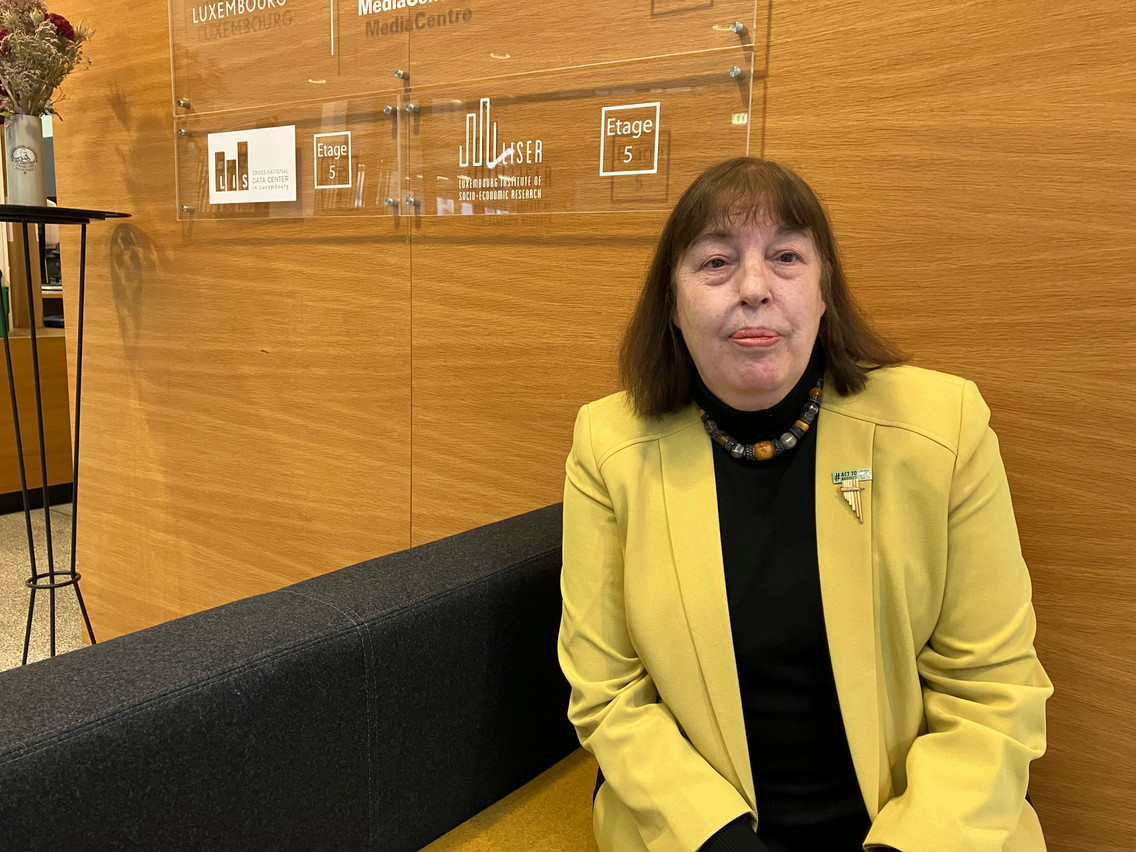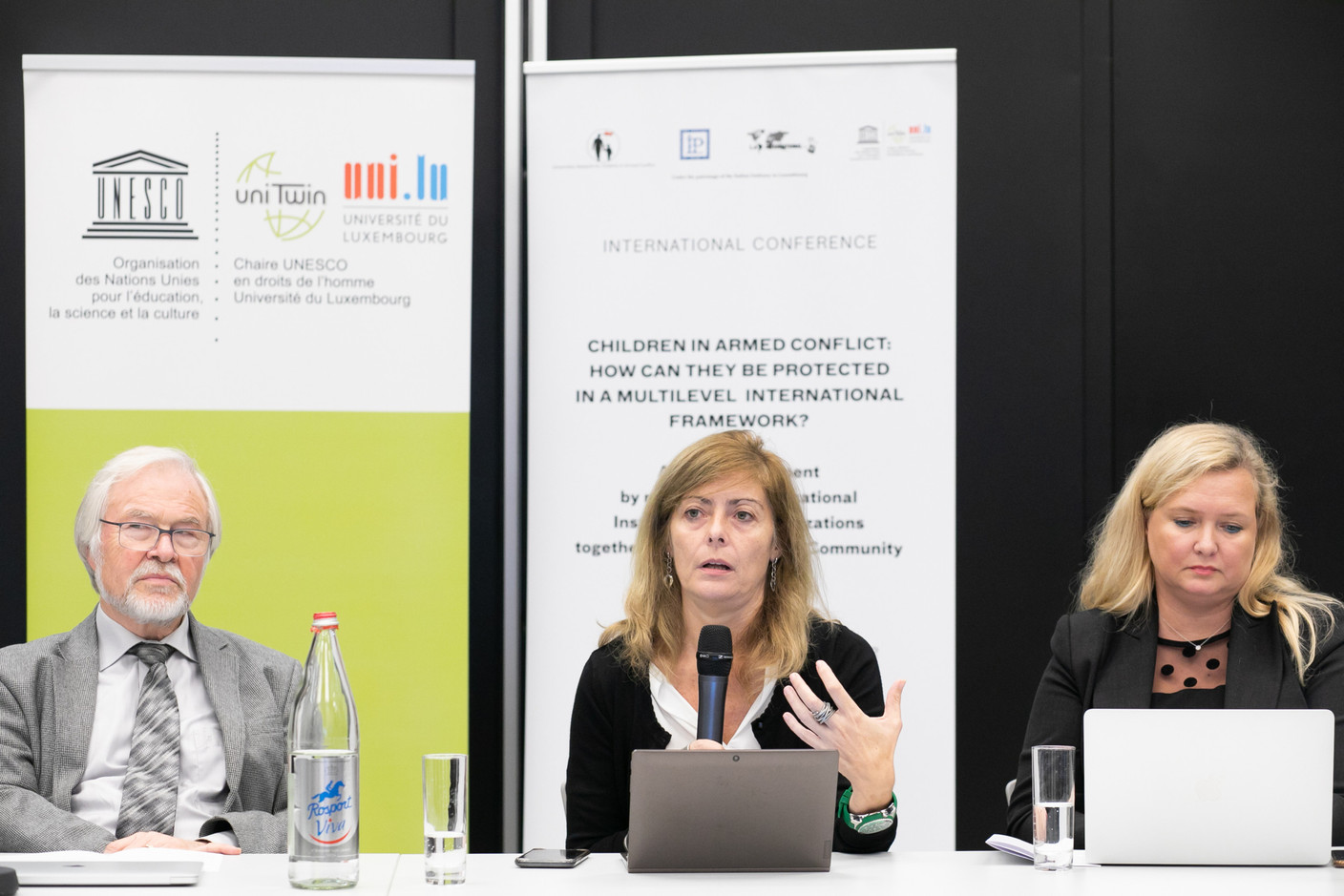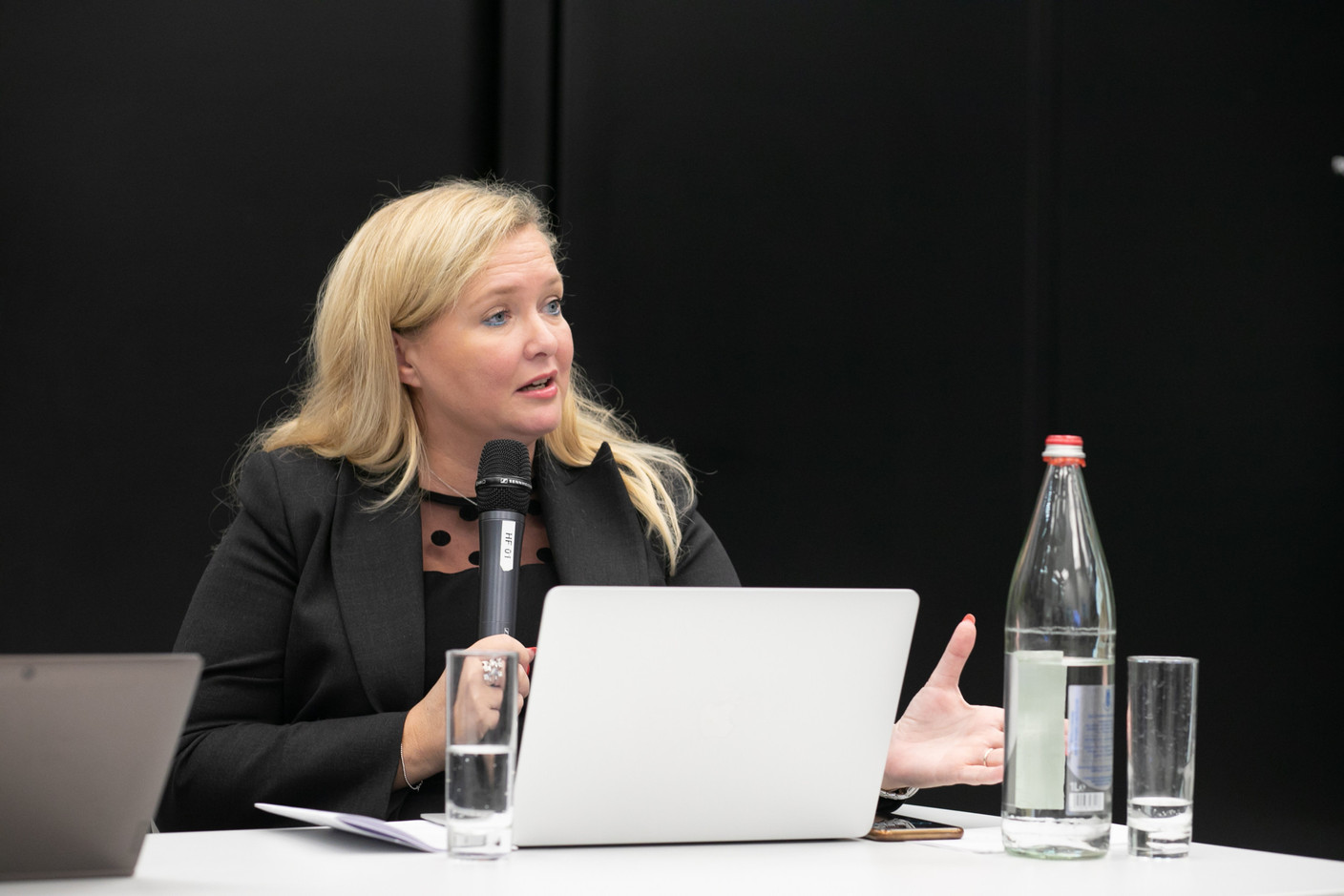What can a network of universities do to protect children that governments or international organisations cannot do? “Public universities have no political agenda,” replied Virginia Gamba, Special Representative of the United Nations Secretary-General for Children and Armed Conflict. They are a safe space for free, impartial research.
During her keynote speech at a panel that saw the presentation of awards for participants of the advanced training course in international criminal jurisdiction and children in armed conflict, Gamba highlighted the importance of training professionals, whether they are lawyers, doctors, psychologists, or academics. Students need to be sensitised and educated on issues, and “in this, universities and research institutes play a crucial, I would say, critical role.”
From universities to reality
By educating, “we ensure that concern for children affected by armed conflict leaves the confines of our conferences and talks, and is taken out into the world,” said Gamba. “It’s useless inside the ivory tower of the university: you have to go out and execute what you have learned.”
Laura Guercio, professor at the University of Perugia, echoed the sentiment. The universities network considers that students should be seen “not only as trainees or students, but as real actors for happiness, stability, peace and security.” It’s one of the aims of the network, and probably one of the most important aims--universities are sometimes too academic, she added. They must go to work on the ground.
The awards from UNETCHAC, a multidisciplinary network consisting of over 40 universities including the University of Luxembourg, will allow recipients to participate in an internship at the International Criminal Court or provide scholarships to continue their education. This year’s awardees came from Iraq, India and the Democratic Republic of the Congo.
Change is not a formula
“We need to transform behaviour,” Gamba declared at the end of her speech. But how can this be done? Change is not a formula, said Gamba. It can happen in different ways. Sometimes it’s at an individual level: it’s a person who “comes to the right position at the right time in the right place and has the right idea.” Other times it’s a question of persuasion. But changing behaviour isn’t done through threats, said Gamba. “Changing your behaviour is when you change the mindset.”
“I think you must not ever forget that humour is a tool. And it is sometimes the one tool that will allow you to reach people that otherwise you would never reach,” Gamba added. “So never forget your sense of humour--it might actually save the day.”
“Problems shouldn’t be invisible”
Gamba had two answers when asked about the most important actions that ordinary people could take to raise awareness of children in armed conflict. The first one was to become informed. “People must first understand the problem,” she said. Individuals don’t know they can change things if they aren’t aware of the issue. This is done by raising public awareness.
The second point was that each person, in their own community, must find ways to better protect children in their community. “By observing the community that you live in, you learn to detect people who need help.”
Walk the street with new eyes, she suggested. For example, if there’s a school that gives night classes, but you notice that there are no lights on the road, this could pose a potential danger, and you might need to contact the municipality to address this. Individuals are responsible for their communities. They need to understand the situation, then get involved. “Problems shouldn’t be invisible,” said Gamba.
Special round table on Ukraine
The conference also featured a special round table that focused on the presentation of the first and second reports of the OSCE Moscow Mechanism Mission on Ukraine. Professors from the universities of Graz, Perugia and Ljubljana, as well as a coordinator from the Centre for civic education “Almenda” in Kyiv participated in the discussion on the fact-finding missions conducted since Russia’s full-scale invasion of Ukraine earlier this year.
The reports highlighted the direct impact of Russian attacks on children like the Mariupol drama theatre attack, other forms of violence such as sexual abuse, displacement from their homes and forced adoption, as well as disruption of vital services such as food, water, healthcare or education.




